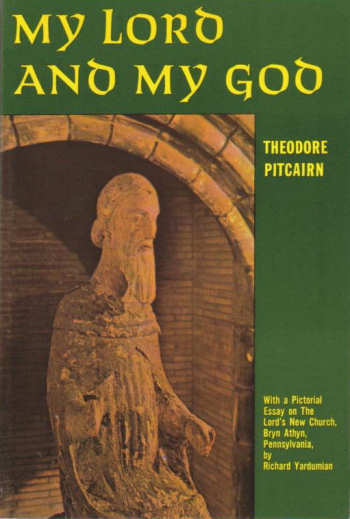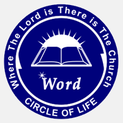My Lord and My God by Rev. Theodore Pitcairn
The Doubting Thomas...
First and Great Commandment... If we are to make the First and Great Commandment — to love the Lord our God with all our heart, soul, mind, and strength—the center of our life, the first question is, Who is God? For if we do not know who He is, we certainly cannot love Him with all our heart, soul, mind, and strength. My Lord and My God... When the Lord appeared to Thomas, after His resurrection, Thomas said, "My Lord and my God." (John 20:28.) Thomas is called “the doubting Thomas,” yet Thomas was the only one of the Apostles who called Jesus “my Lord and my God.” Blessed are They that have Not Seen, and Yet have Believed... To these words of Thomas, Jesus replied, “Thomas, because thou hast seen me, thou hast believed: blessed are they that have not seen, and yet have believed.” (John 20:29.) Who is our Lord and God? It is important not only to know, if possible, who our Lord and God is, but also to know the nature, attributes, or qualities of God. A false idea of God necessarily leads to a false idea of man, and, vice versa, a false idea of man leads to a false idea of God, and this, to a false idea of life. Is God Angry? Does He have human Weaknesses? A man who was speaking to one of a certain religion in a distant land asked him why he was honest while so many of his co-religionists were not. The other replied that in their religions the gods often did dishonest things, and that they saw no reason for being more honest than their gods. As to the question why he was honest, he replied only that he liked honesty. Many in Christian churches think God has human weaknesses, such as becoming angry, changing His mind, loving praise for its own sake, and showing special favors to some when solicited to do so by those close to Him. This subject will be set forth more fully in a later section of this book. A man can become an image of God if he has a living faith and desire, but he can strive intelligently toward this goal only if he has a clear idea of God and His relation to man — something which few have. The Gospels Teach Us Jesus is God... If the Gospels are a true account, Jesus said He was God, yet relatively few in Christian lands, particularly relatively few Protestants, believe this. If it is denied that the Lord is God, then it is evident that the account given in the Gospels is inaccurate, and that the Bible is not the Word of God. Most who do not believe that the Lord is God do not believe that the Lord was born of a virgin, that He was resurrected as to the body, or that he performed miracles. If the account of the Lord’s life given in the Bible is so in¬accurate as to the facts and some of the teachings, how can one know what is true or what is not true in Christian teaching? One person in this case guesses this is true and another that; one more and another less. Christianity is reduced to mere opinions or guesses, and there is no faith, no clear seeing of the truth. "I am the light of the world." If the Gospels are true, Jesus is the light, as He said: "I am the light of the world." But if all of religion is guesswork, where is the light? Do not men then walk in darkness? Christianity then becomes not a religion, but a supposition that there are certain moral and social principles, any of which may be questioned. There is no resemblance between such an idea of Christianity and the faith of the early Christians as expressed by the early Christian fathers. Such an idea of Christianity cannot properly be called Christian, for similar moral and social principles were held by the Stoics and are held by Buddhists, Confucians, and others. |
Seek TruthIntroductionA Closer LookDiving Deeper
Further Reading |
| The Lord's New Church Which is Nova Hierosolyma | Seek Truth |
|
Phone Number:
215-947-2727 Email: [email protected]rg Mailing Address: The Lord’s New Church which Is Nova Hierosolyma 1725 Huntingdon Road Huntingdon Valley, PA 19006 U.S.A |
Copyright © 2016 The Lord's New Church which Is Nova Hierosolyma
Translate our site:

